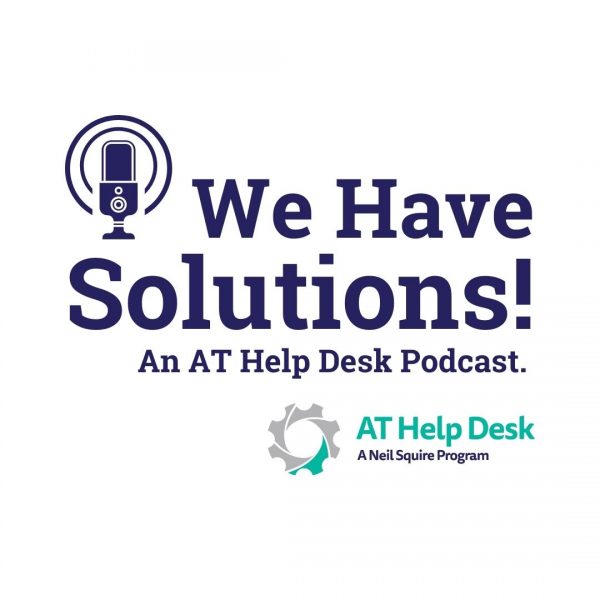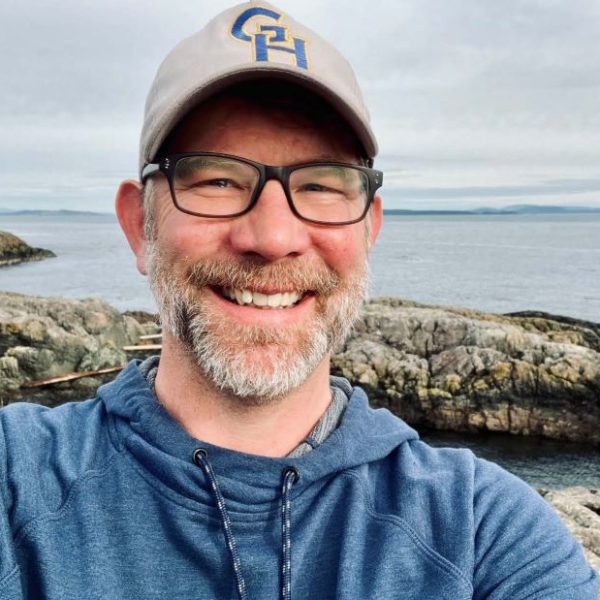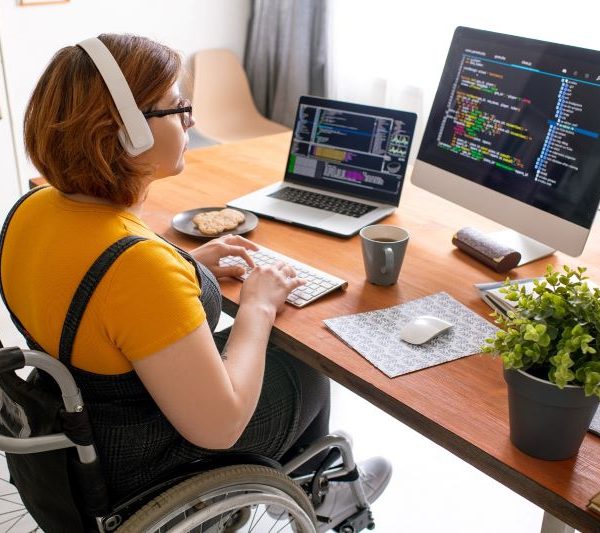New Hearing Aids Help Kaeli Earn a Promotion

Kaeli works at a dog daycare, and she is also self-employed as a dog trainer. However, she has had hyperacusis — sensitivity to sound — all her life, as well as ADHD.
“I struggle to focus in busy environments at the best of times, and it was almost impossible for me to think clearly and maintain my composure in a noisy workplace with dogs barking all the time, not to mention my struggle hearing and communicating with my coworkers,” she explains. “By the end of a shift in that noise, I was exhausted — I was only able to work three days a week due to the fatigue.”
We Have Solutions! – Episode 30: Anki Flashcards, MyStudyLife, Palma 2 E-Reader, and More

Today we review some apps for students including Anki Flashcards and MyStudyLife. Then we review some exciting new AT hardware including the Palma 2 e-reader, and more.
WorkBC Assistive Technology Services “Has Made All the Difference in My Work”

Paula is a homeshare provider, providing support for two adults with disabilities who live with her. Her duties include providing a safe and comfortable home environment, preparing meals, and taking the people she supports to medical appointments.
“I have a hearing impairment that was getting in the way of hearing the people I care for in my home, and also in interactions with medical professionals, day program staff, family, and other individuals and groups involved in their lives,” she explains.
“I Can Now Communicate Freely and Easily With Customers and Vendors”

John is a small business owner, running a local retail store in Vancouver. As the sole employee, he manages all aspects of the business, including opening and closing the store, engaging with customers, and performing administrative and financial tasks.
“I have a moderate to severe hearing impairment that has progressively worsened over the years,” he shares. “This difficulty in hearing has hindered my ability to serve my customers effectively, which had a negative impact on my business. At times, my hearing impairment has also caused frustration and anxiety when interacting with customers.”
Anki Flashcards

Today we are going to look at one of the higher rated flashcard apps on the app store. We’ve looked at a few of these apps in the past, and today we’re going to look at a flashcard app that does things a bit differently.
Anki is a highly customizable flashcard app that supports images, videos, markup languages such as LaTeX and more. The browser version of the app is free, and through this version of the app, users can have the most freedom in how they create and review their deck.
Sam Can Afford Hearing Aids Thanks to WorkBC Assistive Technology Services

Sam is a self-employed tree fruit orchard producer in Kelowna, growing apples and pears on a small orchard. He has hearing loss.
“I believe this started sometime after a left a career in the local saw-milling business. I started noticing difficulty in deciphering audio from one ear and later on from both,” he shares, noting that his hearing loss made it difficult to communicate with his workers, as well as colleagues at crowded conferences that he attends for work.
WorkBC Assistive Technology Services Helps Ryan Get His First Set of Hearing Aids

Ryan has worked as a letter carrier for over 20 years, serving the community of Oak Bay.
“I enjoy working outdoors and being a part of the community,” he shares. “I have moderate bilateral hearing loss. It impacts my interactions with customers on my route, and prevents me from hearing approaching vehicles (especially electric ones).”
Linda’s New Hearing Aids Help Her in the Classroom

Linda works as a Certified Education Assistant in the Okanagan, helping students who need more support in the classroom.
She has hearing loss, which impacts her ability to hear instructions from the classroom teacher — she often has to check back with the teacher to confirm instructions. Since many of the children she works with speak quietly, she also has to lean closer to hear the students.
MyStudyLife Student Planner App

When you’re a student studying multiple subjects, staying on top of your school, homework, social life, and work is not an easy task. Of course, you’ve likely been given an agenda at the start of the school year, and while an agenda serves as a decent paper-based organizational tool, you’re probably going to be better off seeking out a digital alternative instead. This is especially true for students with learning differences who tend to perform better within a more flexible digital space.
MyStudyLife is a personal academic assistant that is designed to keep track of your commitments through scheduling, tasks, and reminders. Essentially it does everything that an agenda does, in a digital space, so that you can access your schedule from anywhere on virtually any device. The app was specifically developed for students, so it’s based around an academic calendar where users can input term dates, holidays, classes, exams, extra-curricular activities and more.
Maria’s New Hearing Aids are “Incredibly Helpful” on the Job

Maria is a family court support worker. Her duties include intakes, referrals, providing emotional support, and accompanying clients during court hearings and meetings.
She has hearing loss, which makes it hard to hear in public spaces and during court hearings and meetings. In particular, she was having trouble hearing her clients when they need to speak quietly.



